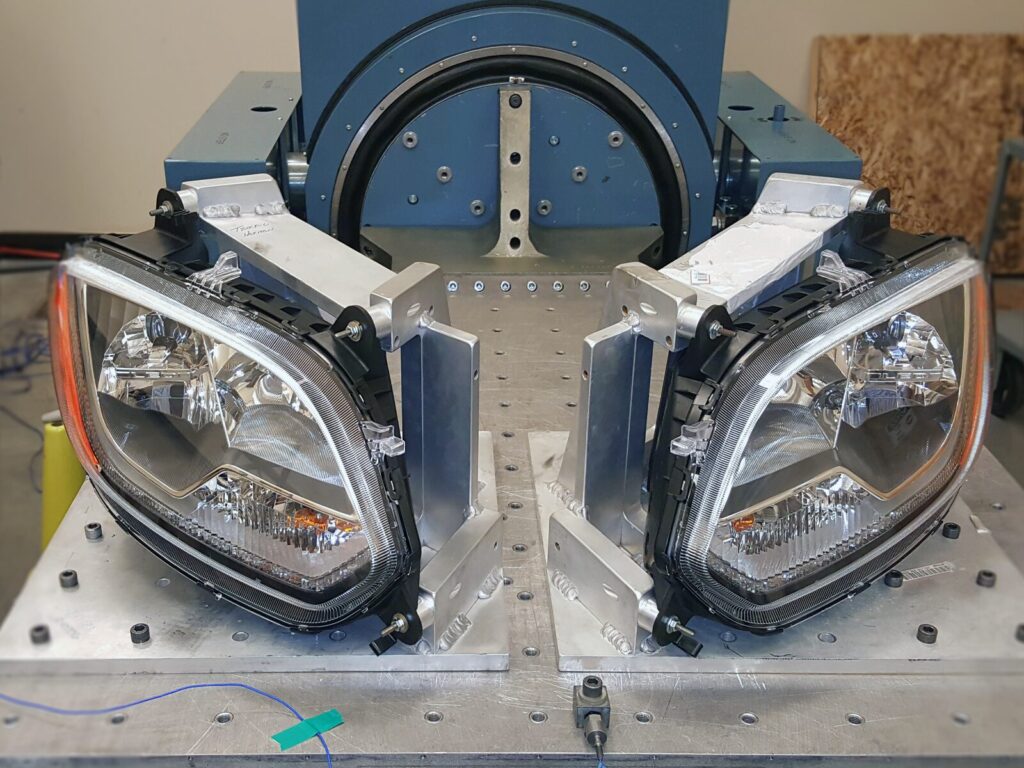The automotive industry is subject to a host of regulations and standards governing the safety, quality, and performance of their products. For each part of the final product, manufacturers must make a range of considerations such as consumer safety, value retention, long-term performance, environmental impact, etc. Furthermore, vehicles go through everything ranging from extended sun exposure to harsh impacts and are expected to withstand a wide array of external factors to an acceptable degree.
Because the automotive industry standards and regulations place the responsibility on manufacturers to establish the integrity of their products, these companies typically have to send parts and samples to third-party automotive testing labs like Applied Technical Services to help ensure their vehicles can meet the plethora of requirements that a car must fulfill.
The ATS Difference
ATS offers a wide range of automotive testing capabilities. Our environmental testing lab can determine a variety of characteristics in client samples, from hardness to thermal properties to flexibility to corrosion or weathering resistance. Using our wide collection of powerful analytical equipment, ATS technicians paint a complete picture of a sample’s overall capabilities and deficiencies by subjecting it to any (or all) of the following tests as relevant to the circumstances:
Analytical Capabilities
- Chemical Resistance Testing: establish materials’ ability to resist change when exposed to a variety of chemical reagents and automotive fluids
- Flammability Testing: evaluate the ease or difficulty with which various components catch on fire, continue burning, and other fire-related characteristics
- Fogging Testing: discern the tendency for materials used in car interiors to off-gas and accumulate as fog on windows and windshields
- Vehicle Emissions Testing: determine various vehicle components’ emission characteristics, namely whether they produce formaldehyde, odor, or VOCs and how much
- Gravelometer / Chip Resistance Testing: discover coatings’ resistance to chipping surface damage by flying objects
- Paint / Coating Testing: measure variety of characteristics related to samples’ coating including weight, thickness, flexibility, color, gloss, adhesion, etc.
- Polymer / Materials Testing: uncover material properties and characteristics, from polymers and plastics to metals and textiles
- Salt Spray / Fog Testing: judge materials’ resistance to corrosion in use by exposing it to an aggressive atmosphere that is more corrosive than the typical service environment
- Temperature and Humidity Cycling Testing: ascertain test samples’ resistance to weathering and corrosion by effects of heat, cold, and moisture
- Ultraviolet (UV) Weathering Testing: understand the samples’ resistance to the effects of short-wave solar radiation
- Vibration Testing: test the response of the test materials to vibration, checking whether they reveal signs of fatigue, generate unwanted squeaks and rattles, etc.
ATS’ automotive testing labs perform each of the listed testing methods to their most relevant industry- or company-specific standard depending on circumstances and client considerations. Our technicians provide accurate results in a timely manner aided by their in-depth experience of performing each of these methods to a variety of industry and client standards.
Our Automotive Testing Labs
For more than 50 years, ATS has delivered testing, inspection, and engineering consulting services of world-class quality. We proudly assist clients from a wide range of industries and countries with their varied third-party analysis needs. Manufacturers in need of an automotive testing facility with a comprehensive array of capabilities need search no further — ATS takes a closer look.
Call +1 (888) 287-5227 to schedule automotive testing with ATS.



